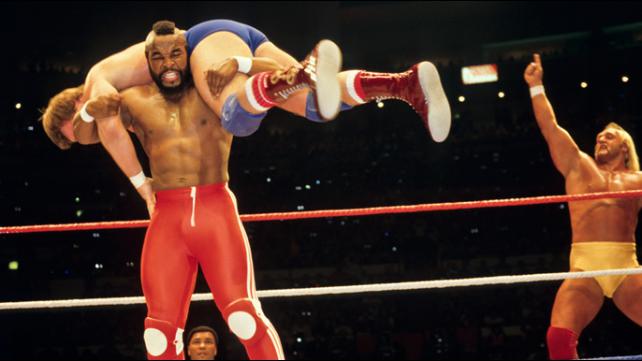Since I began writing “The Stute Smackdown,” my focus has fluctuated from standalone editorials about various aspects of the professional wrestling industry to summary and analysis of WWE programming. I’ll be the first to admit that my best writing was not embodied by the latter type of articles, as they were too technical and, if you didn’t watch WWE, had nothing to offer. I forgot my audience and lost focus. With this column onward, until “The Stute Smackdown” is phased out of The Stute, I want to revisit my original focus and provide interesting, topical looks at the world of professional wrestling, not the narrow focus of WWE programming. With my mini-diatribe ending now, I want to discuss the significance of a yearly event called “WrestleMania.”
On March 31, 1985, WrestleMania I took place. Over 19,000 fans filled Madison Square Garden in New York City. Until this event, professional wrestling was a territorial entity. Fans experienced different wrestling promotions based on their location — there was no universal wrestling promotion that spanned the world, just many parts comprising a whole industry. Broadcasted over closed-circuit television, WrestleMania I reached over a million fans, a feat not achieved on closed-circuit television in the United States yet. Other than its nationwide outreach, WrestleMania I began the integration of professional wrestling into popular culture with the main event featuring “Rowdy” Roddy Piper and “Mr. Wonderful” Paul Orndorff versus Hulk Hogan and The A-Team‘s own Mr. T.
You might be asking, “So what? Mr. T was at WrestleMania; what’s the big deal?” The “big deal” is that professional wrestling existed in its own enclave since its existence, greatly severed from the public realm. In a way, that ostracization still exists today with the public’s perception of professional wrestling (based on stereotypes), but it is much less than it was in 1985 and before. With Mr. T’s partnership with the most popular professional wrestler in existence at the time, Hulk Hogan, the previously segregated realms of professional wrestling and popular culture were unified, never to be separated again.
In layman’s terms, WrestleMania is the Super Bowl, or World Series, of professional wrestling. WrestleMania has sold out its arenas since it began, even setting new records for attendance, surpassing Super Bowl or World Series attendance. It is a week-long spectacle for whatever city hosts it that year, and it is an event that cities vie to host, as it benefits its host city economically with tourism. On the matter of tourism, WrestleMania unites people from the entire world; and that is not hyperbole. From China to Russia to Australia, fans of professional wrestling travel to experience, what is for most, a once-in-a-lifetime event.
I watched my first WrestleMania in 2004 on pay-per-view: WrestleMania XX at Madison Square Garden. My fondest professional wrestling memory occurred that night, as now deceased wrestler Chris Benoit won his first world championship after 18 years in the industry, defeating Triple H and Shawn Michaels for the World Heavyweight Championship. Nine years later, I would attend my first WrestleMania in person: WrestleMania 29 at MetLife Stadium. In the history of WrestleManias, WrestleMania 29 was not the best. In fact, my $200 seats had a partially blocked view, and my friend and I were pretty far from the ring. However, I will never forget that night. The atmosphere that is created when over 80,000 fans are cheering, booing, and screaming for what is essentially fake fighting is unforgettable.
This year, WrestleMania XXX takes place in New Orleans at the Mercedes-Benz Superdome. The 30th anniversary of WrestleMania, WrestleMania XXX marks my 10th anniversary of WrestleMania viewing, and my 13th year as a fan of professional wrestling. Professional wrestling isn’t for everyone, and this column is not trying to sell any readers on it. What this column is intended to do is to highlight how important WrestleMania is. It is not some event that happens in a remote arena, but a global spectacle that unites millions of people under one interest. It rivals the impact of the Super Bowl and World Series not in terms of numbers, but in terms of importance. Professional wrestling brings millions together not to celebrate athletic competition, but to witness the pinnacle of an industry not easily classified as a sport or entertainment: professional wrestling.

Be First to Comment